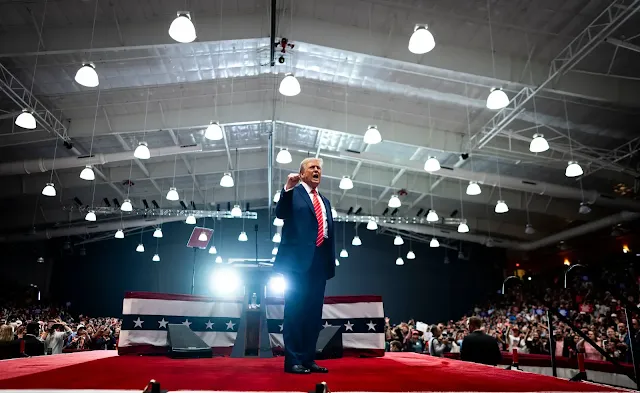Donald J. Trump successfully 47th president.
In a historic and turbulent presidential race, Donald J. Trump has defied conventional expectations to secure victory in the 2024 election. This marks a return to power for the former president, whose campaign rode a wave of populist anger, strategic decisions, and unconventional tactics that resonated deeply with voters.
A Rocky Debate and Resilient Appeal
Despite predictions of a potential backlash following a contentious debate with Vice President Kamala Harris, Trump’s poll numbers held firm. His chief pollster, Tony Fabrizio, anticipated negative media coverage, but even he was surprised by how Trump maintained his ground. This resilience, despite countless controversies—including criminal indictments and reckless commentary—has been a hallmark of Trump’s political career, solidifying him as a figure able to turn perceived liabilities into strengths.
The Strategy Behind Trump’s Triumph
Trump’s campaign crafted a path to victory by carefully targeting disaffected voters. He appealed to those alienated by the nation’s direction and successfully harnessed this sentiment into a movement. With seasoned operative Susie Wiles managing his campaign, Trump employed a streamlined approach, forgoing a traditional ground game and instead focusing on a powerful final ad blitz, aided by volunteers and influential supporters like Elon Musk. By portraying Harris as “radically liberal” and “out of the mainstream,” Trump struck a chord with his base and shifted the election narrative.
Trump’s campaign also took bold steps in its advertising, emphasizing issues where his polling showed an advantage. He tapped into concerns around immigration and economic insecurity, mobilizing key voter demographics, including younger men, many of whom felt disenfranchised. Notably, he connected with Hispanic and Black male voters, fostering a new kind of coalition that broke from typical Republican strategies.
Kamala Harris and the Challenges of Change
For Harris, the campaign was an uphill battle. Burdened by low approval ratings from the Biden administration, she faced challenges in positioning herself as the candidate for change. Throughout her campaign, Harris tried various strategies, from mocking Trump to highlighting her populist agenda. But a constantly shifting focus and limited time made it difficult for her message to resonate effectively with voters.
In one pivotal debate with Trump, Harris’s team had considered pressing for a second debate, hoping to leverage Trump’s aversion to unscripted exchanges. However, Harris ultimately decided against it, missing a potential opportunity to gain a stronger foothold.
The Gender and Cultural Divide
The gender gap loomed large over the election. Trump’s campaign targeted young male voters, cultivating an image that embraced masculinity, even leading him to attend UFC events and participate in podcasts with influential male personalities. Harris, on the other hand, sought to mobilize female voters, especially in the wake of Roe v. Wade’s overturning. Her campaign featured powerful endorsements and ads focused on women’s issues, yet Trump’s response downplayed the topic, assuming his stance on abortion wouldn’t deter enough voters to affect the outcome.
Capitalizing on Controversies
From Trump’s perspective, controversies around his convictions became opportunities. Following his felony conviction on hush-money charges, donations surged, adding $100 million to his campaign. This financial boost enabled Trump’s team to launch a significant television ad campaign, contrasting with Harris’s labor-intensive ground game. Trump’s strategic choice to downplay issues like abortion and instead focus on Harris’s support for taxpayer-funded transgender surgeries struck a chord with voters who felt disconnected from progressive policies.
A Campaign Defined by Calculated Risks
Trump’s road to the presidency in 2024 was one of bold decisions and high-stakes bets, from relying on unproven super PACs for voter turnout to engaging younger, less-predictable demographics. He refrained from traditional campaign methods, betting that his unconventional approach would prove successful—and it did. The campaign’s focus on a specific, underrepresented voter base, combined with his polarizing persona, solidified his place as the 47th president of the United States.
In a victory speech early Wednesday, Trump addressed his supporters, stating, “God spared my life for a reason. We are going to fulfill that mission together.” His triumph stands as a testament to a divided yet enduringly resilient political landscape where, for Trump, defying norms became his greatest strength.









.webp)

0 Comments